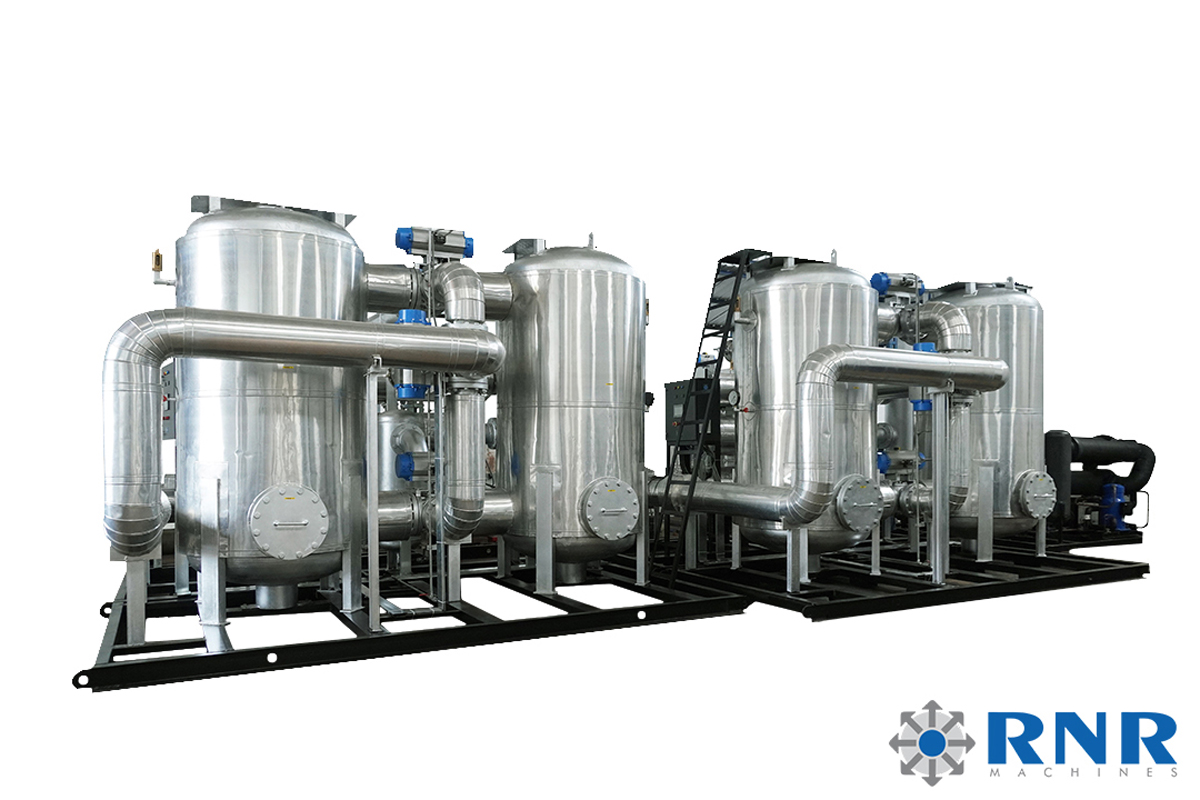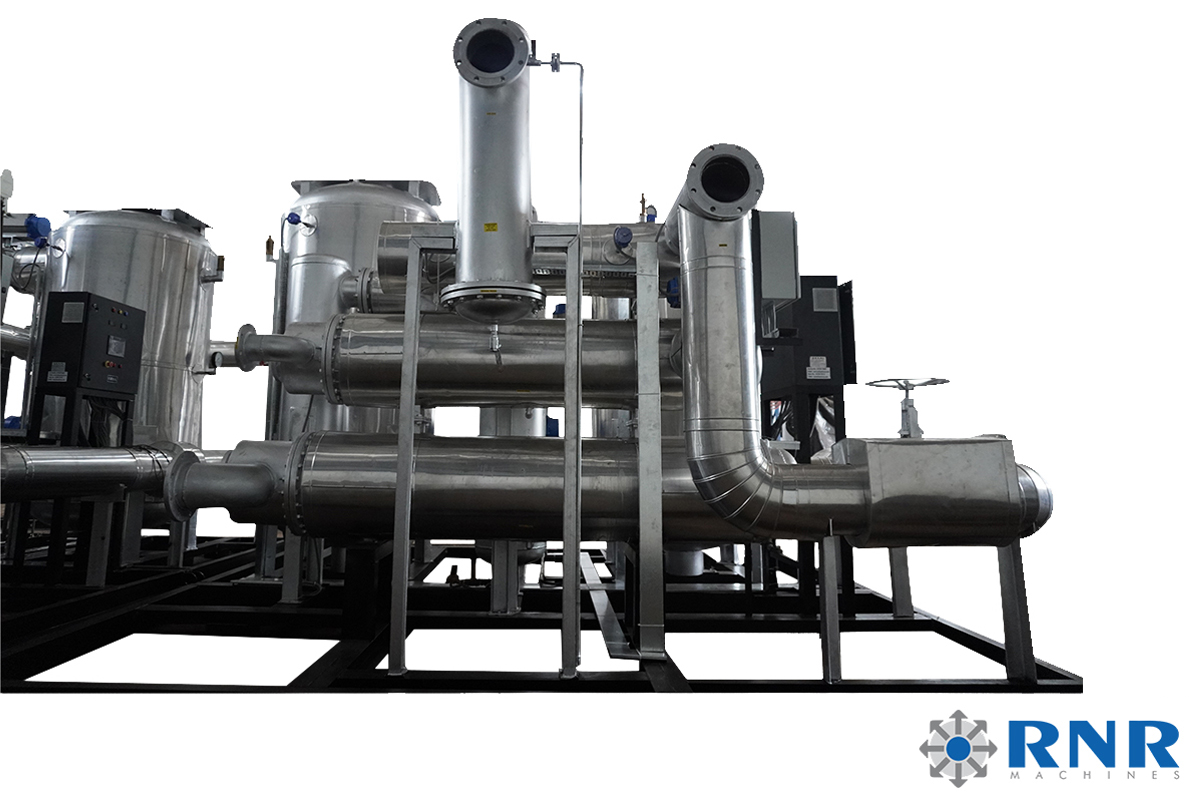Heat of Compression Dryer
(HOC Dryer)
RNR/ Exal manufactures large capacity Heat of Compression Dryers (HOC). HOC dryer uses the heat of compression, typically derived from a compressor without an after cooler. High temperature Air/ Gas enters a twin tower system where it is first used to desorb the moisture by heating the desiccant to high temperatures. The Air/ Gas carriers all the excess moisture from desorption and is then passed through a cooler where it is cooled and the moisture is condensed. The cooled Compressed Air/ Gas is 100% saturated and passes on to the second tower where the moisture adsorbs onto the desiccant and air becomes dry in the process.
The towers interchange from drying to regeneration based on the cycle to allow a continues stream of dry Air/ Gas.
Having a comprehensive understanding of desiccant circuit allows us to simulate many aspects of the machine performance. Some key design aspects used by us simulate machine performance include: Cycle Time, Flow rate, Working Pressure, Dewpoint desired, Inlet Temperature, Compressor Interstage and Intermediate temperatures, Water Temperatures etc. We evaluate the moisture quantity coming into the dryer to determine the desiccant quantity. In addition, we consider other factors such as heating time and cooling time and the flow available for heating/ cooling of the desiccant based on turn down.
Our HOC dryers have the following features:
- Desiccant quantity based on operation parameters.
- High performance rugged Shell and Tube construction for coolers.
- PLC with 7 inch Touchscreen HMI w/ RS 485 connectivity.
- Thyristor for precise temperature control (Larger Heaters)
- Booster heater (w/ spare heater capacity) for low inlet temperatures (Optional)
- Temperature Transmitters for Air/ Gas inlet, Tower Temperatures, Heater Temperatures to determine performance.
- Temperature log and charts etc to evaluate performance and issues.
- Dewpoint Analyzer (Optional)
Note: Heater rating is not the average machine power consumption. Having excess heater capacity is beneficial. Our dryer power consumptions are on basis of moisture in system and the energy required to desorb and heat the desiccant bed.


